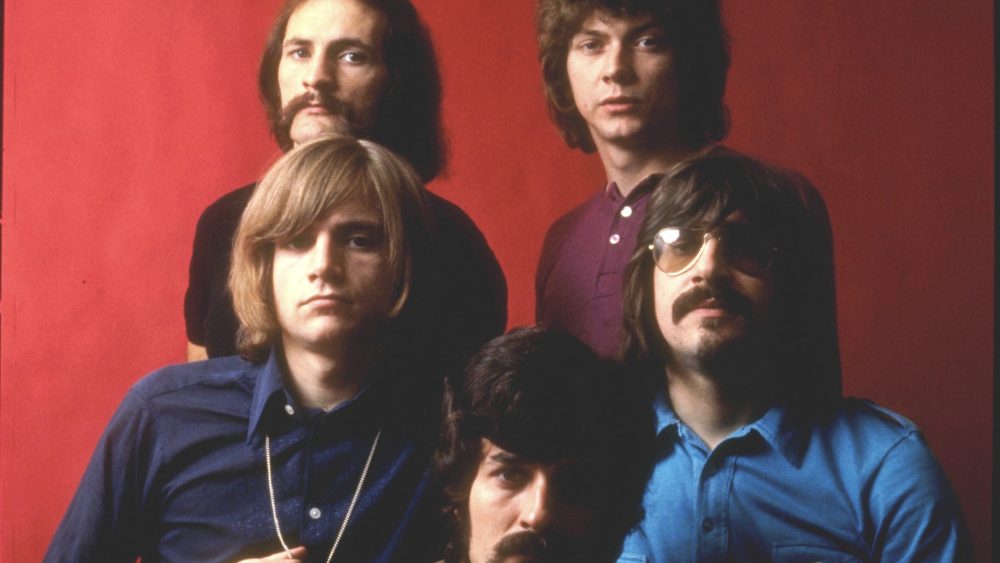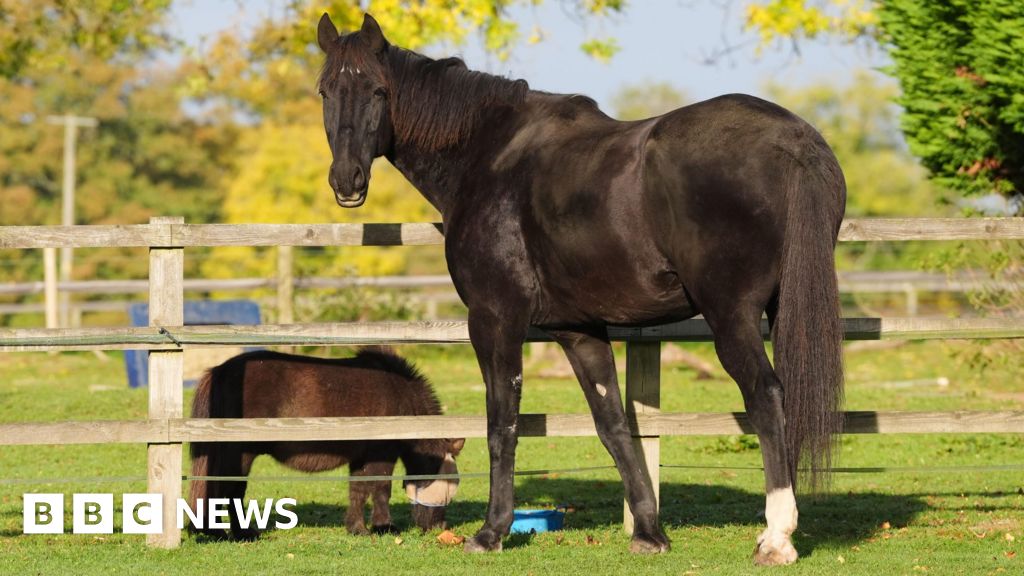The first two movies directed by Bradley Cooper revealed a couple of key things about him. The most essential is that he’s a born filmmaker — not just a good one but a great one. The other thing they revealed is that Bradley Cooper, for all his searching intelligence and humanity, is a consummate creature of showbiz. His entrancing 2018 remake of “A Star Is Born” was steeped in the entertainment industry (arena rock, dance-pop videos, the Grammys), and part of the film’s power lay in the granular authenticity with which it portrayed those worlds. As for “Maestro,” Cooper’s haunting Leonard Bernstein biopic, it told the story of a classical musician who was baptized in the limelight; that he had to keep his private life offstage only threw the luminous sheen of his celebrity into higher relief.
After those two visions of the high-maintenance inner lives of artist/entertainers, “Is This Thing On?,” Cooper’s third outing as a director (it premieres tonight at the New York Film Festival), comes off as a deliberately shaggy and casual change of pace. It’s a tale of marital separation and impending divorce, shot in an easy-flow voyeuristic hand-held style, and it’s about two people who are supposed to be ordinary enough to represent the lot of us.
Alex and Tess Novak (Will Arnett and Laura Dern) have been married for 20 years. They live in a handsome old house in the New York suburbs, where they have two sons who are both 10 (they’re “Irish twins,” as Alex explains). Alex works “in finance,” which is as detailed a description of his job as we ever hear; we never once see him at work (which is strange for a character who’s in finance, given that work is pretty much all they do, but never mind). Tess is a stay-at-home mom, though with a high-powered past that looms large.
The film opens with the two of them trying to find the right moment to tell their boys that they’re separating. There is no right moment, and the early scenes are about fumbling steps and the tentativeness of awkward new roles. Alex moves into an apartment in the West Village — a sterile place that he barely gets around to furnishing, though as divorce crash pads go it doesn’t exactly look cheap. To mark his new life, Alex buys a blue-and-white VW van, shuttling back and forth between the city and the burbs; he also has his kids over to stay with him. The co-parenting seems to go reasonably smoothly, with a minimum of rancor.
But there’s a showbiz wild card at play. On his first night alone in the city, Alex is wandering around the Village and tries to get a drink at the Olive Tree Café, the fabled spot on MacDougal Street that’s attached to the Comedy Cellar (which is the floor below). There’s a $15 cover charge, which Alex doesn’t have the cash for, so to get in for free he agrees to do an open-mic comedy set. We in the audience roll with this in a way that goes down easy, though maybe a little too easy. Will Arnett, after all, is a comedian, and when Alex first gets up there, staring into the black void of an audience, we don’t really have the feeling that this is a “finance guy” who has suddenly stepped into the existential spotlight of stand-up. Looking confident and relaxed, he starts talking about his divorce predicament, and despite a silent stretch or two he gets off a few good lines about it. He glides into the stand-up zone without much fuss.
Then again, the movie provides a context for that. At the club, Alex is surrounded by other stand-up comics, as he of course would be, but it’s not just “Oh, here’s what happens at a comedy club.” The other acts we see are all personal and confessional comics (played by real comedians like Jordan Jensen, Chloe Radcliffe, Reggie Conquest, and Dave Attell), who draw jokes out of spilling their lives out onstage. That this has become the new normal in comedy is the legacy of many great stand-up artists, from Richard Pryor to Sarah Silverman, but it also says something about our therapeutic culture of too much information. Just as the rise of “American Idol” marked the transition into a world where everyone, it seemed (or, at least, a hell of a lot more people than there used to be), knew how to sing, “Is This Thing On?” unfolds in a society where the democratization of stand-up has spread the comedy impulse far and wide.
It’s now what people do. They get up in front of a crowd to make light of themselves, attack their exes and enemies, and turn their most intimate stories into laughter. And maybe that’s why “Is This Thing On?” doesn’t feel all that “inside” in its presentation of the stand-up-comedy world. It’s not nearly as incisive a view of what goes down in comedy clubs as the one conjured by Mike Birbiglia’s brilliant “Don’t Think Twice” (2016). Then again, Alex isn’t trying to “make it” as a stand-up. He’s using open-mic night for therapy, and he’s not bad at it — he’s just okay enough to generate some chuckles of recognition and avoid embarrassing himself.
We can certainly buy all this. Cooper, who wrote the script with Arnett and Mark Chappell, based the movie on the life of a British pharmaceutical rep named John Bishop whose marital-separation fling with stand-up was a story Will Arnett had heard about. But even though it doesn’t necessarily strain credibility, the stand-up-comedy plot of “Is This Thing On?” does turn a marriage story into a kind of real-life showbiz fairy tale. Alex, his marriage having disintegrated, feels like he’s lost everything, and stand-up offers him a lifeline — a way to save himself, and maybe to save other things too.
It’s an observant, bittersweet, and highly watchable movie, yet there’s an inner softness to it, a slightly pandering quality. Will Arnett, who has the look and demeanor of a less energized Michael Keaton, is a likable enough actor in a slightly mopey way, but he has done a lot of sitcom work, and it shows. In “Is This Thing On?,” Arnett seems, in essence, to be playing Alex as a sitcom dad — sharp-tongued yet benign, lost in his daze of self-interest, with an essential quality of harmlessness that’s the opposite of movie-star danger.
Laura Dern, so brilliant as a divorce lawyer in “Marriage Story,” here invests Tess with a sharpness that never veers too far from sadness. We pick up on the idea that the separation has been driven by her, but Tess’s sense of regret hangs over the movie, especially when her backstory gets filled in: She was a member of the U.S. Olympic volleyball team (a star athlete — there’s that hint of showbiz rearing its head again), and she is now bent on getting back to her athletic roots by becoming a coach. She gets together with Laird (Peyton Manning), who can connect her to that world, and in one of those we-know-it’s-only-a-movie-but-come-on! coincidences, their drink, which morphs into a date, results in their heading over to a nearby comedy club…where Alex just happens to be performing! She hears his unfiltered portrait of their marital spats, and their sex life, compacted into one five-minute monologue. But that’s okay! It’s essentially the film’s version of couples therapy.
Cooper has unerring showbiz instincts. He surrounds Alex and Tess with friends and relatives — like Alex’s goofy second-rate stage-actor brother, Balls (played by Cooper with a cheesy grin under a variety of facial hair), and his wife, Christine (Andra Day), who expresses a great deal of righteous hostility toward men so that Tess doesn’t have to, along with some friends, played by the likes of Sean Hayes and Scott Icenogle, nattering in the background. As Alex’s parents, Christine Ebersole and Ciarán Hinds are the film’s crowd-pleasing billboard for what even a happy marriage is: affection and empathy, sure, but also two people who have agreed to tolerate more about each other than they don’t.
There are far worse things that a gifted filmmaker could offer an audience these days than a feel-good divorce comedy. Yet “Is This Thing On?” is a minor movie that cushions the agony of a marital split in ways that can feel like it’s cutting corners. Alex and Tess are well-off enough to have a very posh separation, their disconnect hinges more on misunderstanding than anger, and while Alex is supposed to be moonlighting as a comic, the truth is he hardly seems to do anything but stand-up comedy. In a funny way, the film treats even marriage as a form of showbiz. It says that once the demons have been acknowledged, the show must go on.















Leave a Reply